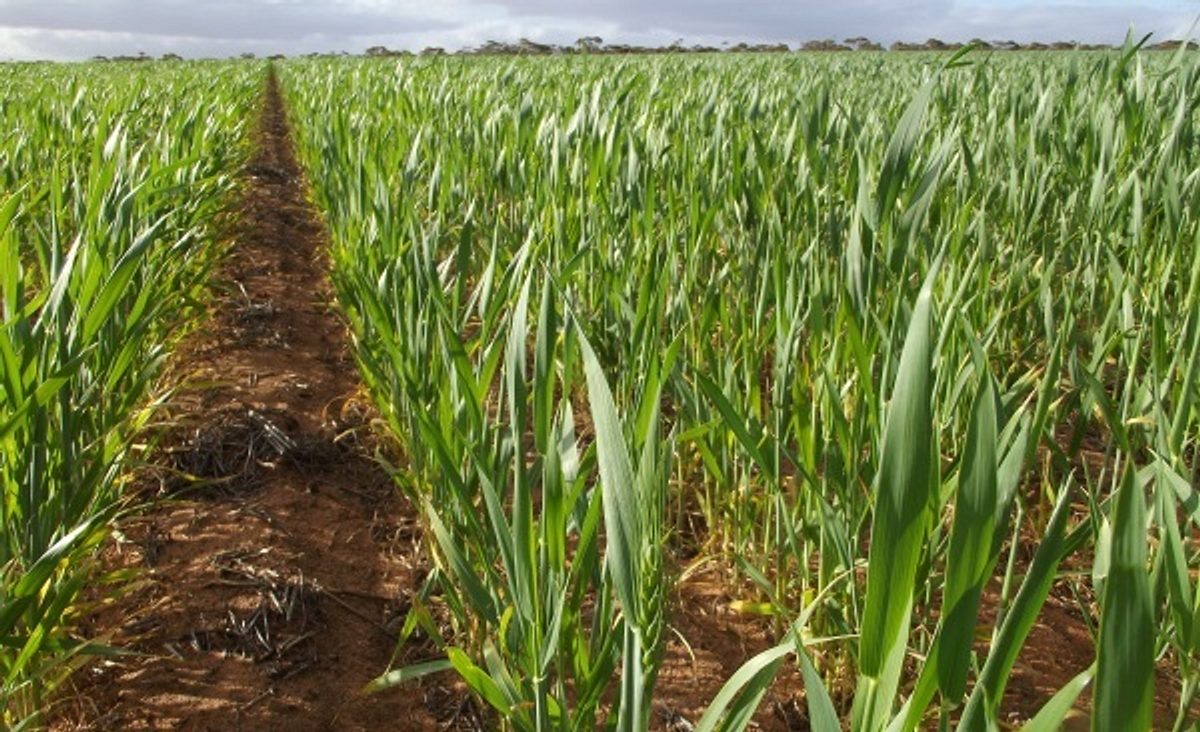Regenerative Agriculture Program
Our five-year Regenerative Agriculture Program, funded by the Australian Government's National Landcare Program, finished up in June 2023. Since September 2020, the program was delivered by grower group Ag Innovation & Research Eyre Peninsula (AIR EP).
The program aimed to increase awareness, knowledge and adoption of land management practices on the Eyre Peninsula to restore soil pH levels, increase soil organic carbon levels and reduce the risk of nutrient loss from wind erosion. It supported farming systems groups and individual farmers to implement best practice management and practice change; and showcase the results to the broader farming community.

Case studies: soil carbon, Mallee seeps, acidity
A significant part of the program focused on grants to support local farmers to undertake demonstration sites on-farm.
We encourage others to learn from these demonstrations. These short case studies outline what Eyre Peninsula farmers trialled including what did and didn't work for them.
- A cropping and sheep enterprise at Pinkawillinie, saw up to 300mm of rain over a 24 hour period during the January 2022 extreme weather event. This resulted in flooding and erosion of topsoils. Read the Yates case study about how they managed erosion and other recovery issues.
- When a lower Eyre Peninsula farmer starting having issues with aluminium toxicity such as a reduction in drought tolerance and fertiliser to yield conversion along with dead patches in wet seasons, they started rotational liming. Read the McDonald case study to find out more about their experience of managing soil acidity at their properties at Whites Flat, Koppio, Wanilla and Winters Hill.
- An eastern Eyre Peninsula farmer shares how they have changed their business to suit the low-rainfall climate, with a focus on livestock and improving soil cover and grazing potential through planting multi-species pastures. Read the case study to find out what has worked for their Elbow Hill farming business.
- Lock farmer Kerran Glover has been involved in our EP Mallee seeps project and has found that treating Mallee seeps early and keeping perennial ground cover helps to manage seeps. Read the case study to find out how bare patches and scald have been successfully managed.
- A soil carbon grant for an Ungarra farmer, focused on how deep ripping combined with mixed species could improve production and also soil health in the longer term. Read the case study.
- Lower EP farmer Simon Turvey, has used our one-on-one technical support to work out the best way to treat sub-surface acidity after lime only improved surface pH on their Greenpatch property (2021). Read the case study.
- A mixed species pasture demonstration at Tumby Bay to investigate increasing production, particularly on the Colman's high rainfall but marginal high sloping property, from a 2020 grant.
- A mixed species pasture demonstration at Pinkawillinie (2020-21) as an alternative to medic for sheep grazing, controlling erosion & planting on sandy soils.
- A mixed species pasture demonstration at Ungarra (in 2020-21) for improved soil health and nutrition.
- A mixed species demonstration site at Cleve on drought-affected land, looking at legumes v no legumes from a 2020 grant.
- A soil carbon project being undertaken by the Lock, Murdinga, Tooligie Farming Group at Hodge's farm (Lock).
- A plant-based project being undertaken by the Lock, Murdinga, Tooligie Farming Group at Glover's farm (Lock).
This 15-minute video was created by the Buckleboo Farm Improvement Group through one of our grants - separate to the Regenerative Agriculture Program - but is a resource for anyone interested in regenerative agriculture.
Eyre Peninsula farmer Ellen Zibell explores opportunities for regenerative agriculture to improve her family farming operation at Buckleboo. Ellen sits down with Cleve farmer Ben Randford to talk about five principles of regenerative agriculture and Ben’s journey into regenerative ag over the past 10 years.
Publications
Our Farmers Connect EP newsletter was a quarterly publication throughout the Regenerative Agriculture Project. Below are the editions from throughout the project.
We now release a few editions each year (around five). See our newsletter page for recent editions and subscribe to get the next edition direct to your inbox.
2018-2023 newsletters
- December 2023 - Farmers Connect EP
- June 2023 - Farmers Connect EP, edition 20
- Feb/March 2023 - Farmers Connect EP, edition 19
- October 22 - Farmers Connect EP, edition 18
- August 2022 - Farmers Connect EP, edition 17
- May 2022 - Farmers Connect EP, edition 16
- February 2022 - Farmers Connect EP, edition 15
- December 2021 - Farmers Connect EP, edition 14
- September 2021 - Farmers Connect EP, edition 13
- May 2021 - Farmers Connect EP, edition 12
- March 2021 - Farmers Connect EP ed. 11
- December 2020 - Farmers Connect EP ed. 10
- September 2020 - Farmers Connect EP ed. 9
- June 2020 - Famers Connect EP ed. 8
- February 2020 - Farmers Connect EP ed. 7
- November 2019 - Farmers Connect EP ed. 6
- September 2019 - Farmers Connect EP ed. 5 'Healthy soils'
- June 2019 - Farmers Connect EP ed. 4
- February 2019 - Farmers Connect EP ed. 3
- December 2018 - Farmers Connect EP ed. 2
- November 2018 - Farmers Connect EP ed. 1
Keep up-to-date
Subscribe to our bi-monthly newsletter which provides updates on our projects and other news. Or subscribe to our Farmers Connect newsletter (around five editions a year).
For our most up-to-date news, find us on:
